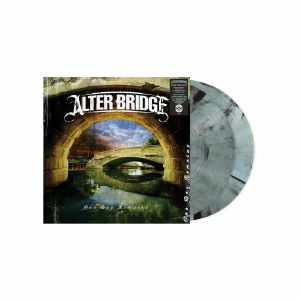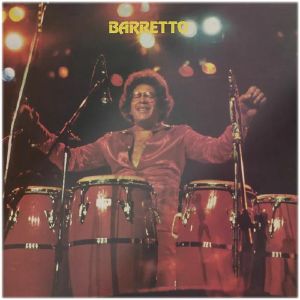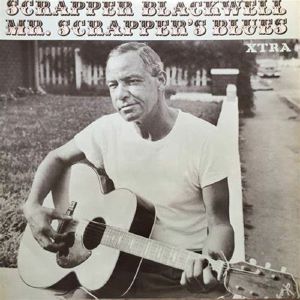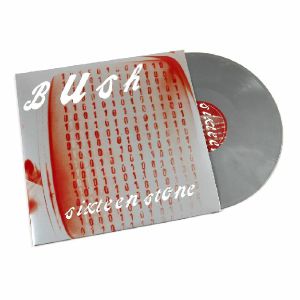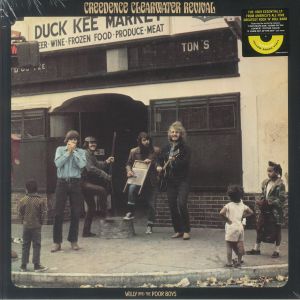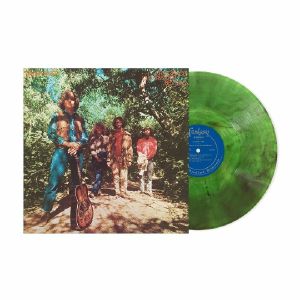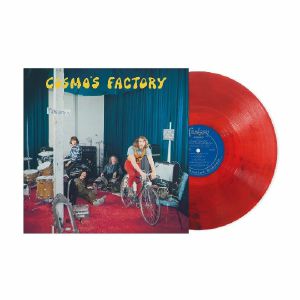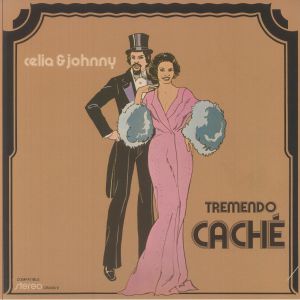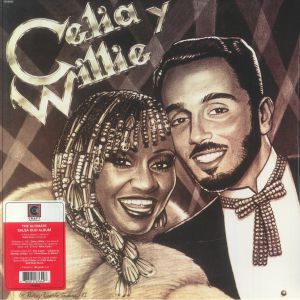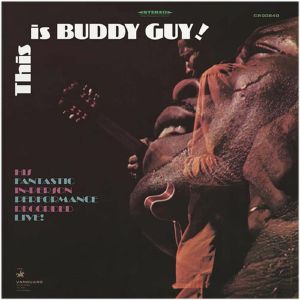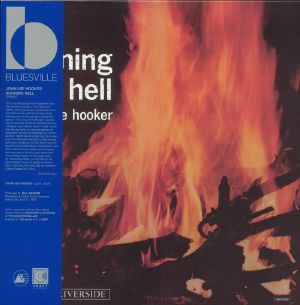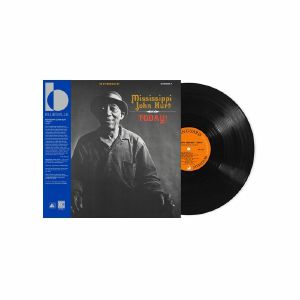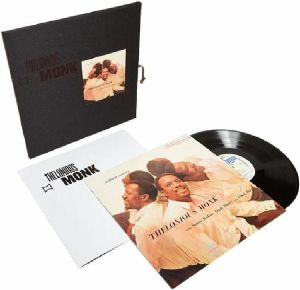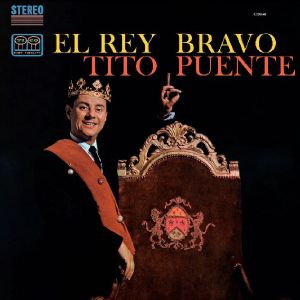Back catalogue: All genres
Juno's full catalogue of All genres
アルバム
One Day Remains (Deluxe Edition) (gatefold 'electric smoke' vinyl 2xLP (indie exclusive))
Cat: CRF 1679601. Rel: 05 Mar 25
Rock
in stock $47.76
Barretto (50th Anniversary Edition) (180 gram vinyl LP in fold-out sleeve)
Cat: CR 00888. Rel: 08 May 25
International
Review: Craft Latino celebrates the 50th anniversary of the landmark 1975 salsa album by Ray Barretto with a deluxe reissue. This remastered edition of Barretto features the debut of Ruben Blades and Tito Gomez and includes iconic tracks like 'Guarare,' 'Ban Ban Quere' and 'Canto Abacua.' It has long been considered a cornerstone of the genre in which Barretto blends rich Afro-Cuban rhythms with lyrical depth and masterful musicianship from legends like Sly & Robbie and Augustus Pablo. It's a real bit of Latin music history that shines bright and is packed with shuffling rhythms and the sort of expressive percussion and horns that take you to a different continent in an instant.
… Read morePlayed by: Juno Recommends International
in stock $37.59
Mr Scrapper's Blues (Bluesville Acoustic Sound Series) (180 gram vinyl LP with obi-strip)
Cat: CRF 1699241. Rel: 21 May 25
Blues
Review: Scrapper Blackwell's final recordings, laid down in Indianapolis in 1961, marked the return of a blues guitarist and singer who had been silent since the mid-30s. Mr. Scrapper's Blues was released posthumously in 1962, just after Blackwell was shot and killed - a stark coda to a career shaped by both brilliance and misfortune. First out on Prestige's Bluesville sublabel, this stark, unclipped LP finds Blackwell alone at the mic, handling guitar, piano and vocals himself. The South Carolina-born, Indiana-raised musician earned early fame through his trailblazing partnership with Leroy Carr in the late 1920s and 30s, before vanishing from music entirely following Carr's death. This 180-gram reissue from Craft revives that late-career spark via an all-analogue mastering by Matthew Lutthan.
… Read more! low stock $44.94
Sixteen Stone (30th Anniversary Edition) (limited gatefold silver vinyl 2xLP (indie exclusive))
Cat: CR 08780. Rel: 31 Dec 24
Indie/Alternative
in stock $45.21
in stock $54.83
in stock $54.83
Cosmo's Factory (remastered) (translucent red smokey vinyl LP)
Cat: UNIP 72672661. Rel: 27 May 25
Rock
in stock $53.98
Tremendo Cache (50th Anniversary Edition) (180 gram vinyl LP)
Cat: CRF 1683041. Rel: 31 Mar 25
International
Review: A tremendous cache of tunes by Celia Cruz and Johnny Pacheco, two art-nouveau dandies of the Latin salsa and gurachas sound, the latter of which has remained the dominant form of music in Cuba since at least the late 18th Century. The 20th, of course, heard a dramatic reworking of the sound into big band swing, as it would soon be taken up by many a Latin American cojunto (small band/ensemble). Cruz broke into international stardom from 1950, but would not venture beyond the gulf to with Dominican counterpart Johnny Pacheco until 1974, and Tremendo Cache was not their first collaboration either. With right-foot-forward steps and picaresque rufflings, the pair deliver a latently sombre record, despite the snappy energy, with some of the remastered cuts including 'Don't Talk To Me About Love' and 'I Can't Stand It Any More' laying among the more acerbic of titles!
… Read more in stock $28.26
in stock $37.29
This Is Buddy Guy! (Bluesville Acoustic Sound Series) (180 gram vinyl LP)
Cat: CRF 1699201. Rel: 14 May 25
Blues
in stock $44.37
Burning Hell (reissue) (B-STOCK) (180 gram vinyl LP with obi-strip)
Cat: CR 00657 (B-STOCK). Rel: 01 Jan 90
Blues
B-STOCK: Record slightly warped
Review: ***B-STOCK: Record slightly warped***
John Lee Hooker's Burning Hell is a searing and intense album that captures the raw power and emotion of the blues. Originally released in 1964, the album has been reissued on vinyl and remains n important milestone to Hooker's artistry. The album opens with the title track, a slow-burning blues that sets the tone for the rest of the album. Hooker's vocals are raw and passionate, and his guitar playing is both hypnotic and driving. The album also features several classic blues standards, including 'Baby Please Don't Go' and 'Key to the Highway.' The album is a timeless classic that continues to inspire and amaze listeners today.
… Read moreJohn Lee Hooker's Burning Hell is a searing and intense album that captures the raw power and emotion of the blues. Originally released in 1964, the album has been reissued on vinyl and remains n important milestone to Hooker's artistry. The album opens with the title track, a slow-burning blues that sets the tone for the rest of the album. Hooker's vocals are raw and passionate, and his guitar playing is both hypnotic and driving. The album also features several classic blues standards, including 'Baby Please Don't Go' and 'Key to the Highway.' The album is a timeless classic that continues to inspire and amaze listeners today.
in stock $31.65
Today! (Bluesville Acoustic Sound Series) (180 gram vinyl LP with obi-strip)
Cat: CRF 1681711. Rel: 12 Mar 25
Blues
Review: Originally recorded in 1966 during his remarkable comeback - he'd been playing since the 20s but was rediscovered by various musicologists and found a new audience at Newport and Philadelphia's folk festivals in 1963 - this album demonstrates why he became a beloved mainstay of the folk revival. Unlike traditional bluesmen, Hurt's style is rooted in melody and intricate fingerpicking, making him a profound influence on the folk musicians of the 60s. His dexterous guitar work, often feeling as if multiple players are involved, pairs seamlessly with his soothing, almost meditative voice. Tracks like 'Pay Day', 'Louis Collins', 'Spike Driver's Blues', and 'Make Me a Pallet on Your Floor' showcase his ability to transform folk and blues traditions into something uniquely personal. He even delivers a rare but successful slide guitar performance on 'Talking Casey'. A particularly stunning moment comes in 'Beulah Land', where his intricate cross-rhythms add new emotional depth to a traditional song. Every track exudes a gentle, comforting presence, as if Hurt himself is sitting beside the listener, easing their troubles. His voice, often described as a balm for the soul, remains as rich and warm as ever, untouched by time. A beautiful, healing and profoundly moving experience that continues to impress more than half a century later.
… Read more in stock $44.66
Brilliant Corners (Small Batch Series) (limited numbered 180 gram one-step vinyl LP + booklet in slip-case)
Cat: CRF 1723741. Rel: 21 May 25
Jazz
in stock $120.95
El Rey Bravo (remastered) (limited 180 gram yellow vinyl LP)
Cat: CRF 1725961. Rel: 21 May 25
International
in stock $33.90

 USD
USD






